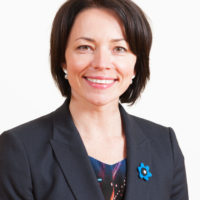Estonia Earmarks Additional Funds to Support Students After Remote Learning
Estonia will allocate €12 million (US$14 million) this year to address the impacts of remote learning on students. These funds are in addition to €13.5 million (US$15.7 million) already invested in the spring for extra support for students in schools and during the summer. Education Minister Liina Kersna said schools will be able to use the funds flexibly. Strategies may include small study groups, one on one tutoring and additional staff for schools. The Minister said: “Every pupil must have the opportunity to receive extra professional support to make up for the gaps in their learning so that further learning is not hindered.” For more, see ERR News.

New South Wales Unveils Plan to Recruit New Teachers

To head off an expected teacher shortage due to a growing student population, aging teaching workforce, and fewer students wanting to become teachers, the New South Wales (NSW) Department of Education plans to recruit 3,700 teachers over the next ten years. The multi-pronged approach focuses on recruiting teachers from overseas and other parts of Australia, encouraging local high school students to pursue a career in teaching, and launching a marketing campaign to positively influence public perceptions of the teaching profession. The plan was developed with data analytics and feedback from local teachers. Particular emphasis will be placed on recruiting for high-needs areas by developing pathways for teachers’ assistants to become teachers and creating a new incentive scheme to encourage teachers to work at regional and rural schools. While the NSW Teachers Federation has argued that higher salaries could help eliminate the expected shortage, the Department of Education believes it can recruit thousands of teachers without raising teacher pay beyond modest levels to counteract inflation. Read more at The Sydney Morning Herald.
Quebec Gives Child Care Workers a Raise
Quebec will give all child care workers a raise as of mid-November, amid a growing shortage of workers across the province. The government is in the middle of contract negotiations with child care workers, who have been without a contract for a year and a half. Treasury Board President Sonia LeBel said: “The current salary isn’t attracting new educators into the system and it’s not contributing to retaining them either.” The raise, which will cost the government CAN$132 million (US$107 million) a year, is just a first “gesture” to show good faith at the bargaining table, according to LeBel. She said she is aware working conditions are equally important and will be part of the contract negotiations. For more, see CBC Canada.

Singapore Expands Preschool Early Intervention Supports

The Singapore Early Childhood Development Agency (ECDA) announced that it is expanding early intervention services for preschool children with developmental needs. By the end of 2023, every preschool is expected to appoint one of its staff as an inclusion coordinator who can help identify children with potential developmental challenges for early assessment. The coordinator will also be responsible for connecting educators and parents with relevant early intervention resources and services. According to ECDA, the program will cover 60 percent of preschoolers ages five to six by 2025 and 80 percent of them eventually. Additionally, the government will reward low-income families for early enrollment in preschool by making additional contributions to their child’s development account—savings accounts established for every Singaporean child. As part of the KidSTART initiative, low-income families will get annual “top-ups” for each year they enroll their children in preschool, with larger amounts given to families who enroll their children at ages three and four. Families can use these incentive funds to offset education costs. Read more at Channel News Asia.




